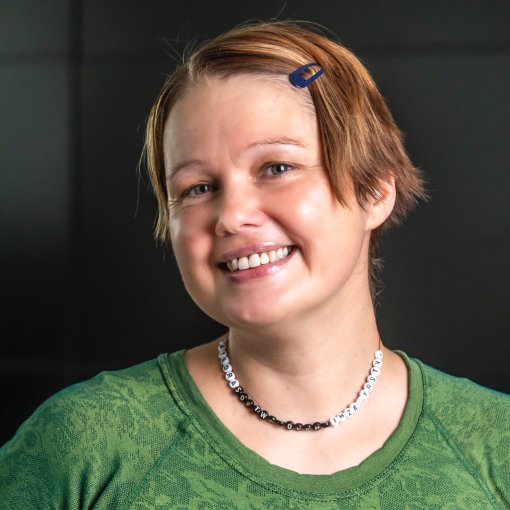Advancing effective adoption of FAIR principles in research data management
Program
Promoting the mobility of researchers and workers in the framework of international cooperation in R&D
Provider
Ministry of Education, Youth and Sports
Investigators
Code
8J22AT015
Period
2022 - 2023
Description
V tomto projektu plánujeme využít jedinečnou kombinaci odborných znalostí našich dvou týmů (CZ a AT) v oblasti správy dat, machine-actionable DMP, vývoje softwaru s ohledem na FAIR, sémantických webových technologií a zpracování přirozeného jazyka (NLP) k urychlení efektivního přijetí principů FAIR ve správě výzkumných dat. Vyvineme metody, modely a pokyny pro výzkumné pracovníky i správce dat, abychom jim usnadnili implementování principů FAIR. Primární důraz bude kladen na přijetí FAIR efektivním způsobem s využitím automatizace a vyhodnocování. Sladěním přijetí FAIR s nejlepšími praktikami plánováním správy dat se vyhneme další zátěži pro výzkumné pracovníky. Naopak je cílem zlepšení kvality plánů správy dat ve prospěch výzkumných pracovníků i financujících subjektů.
Connect and align ELIXIR Nodes to deliver sustainable FAIR life-science data management services’
Program
Horizon 2020
Provider
European Commission
Departments
Investigators
Code
871075
Period
2021 - 2024
Description
The diversity, complexity and volume, as well as privacy and regulatory considerations, necessitate a collaborative and federated approach to life-science data. For scientists to find and share data across Europe and world-wide, ELIXIR needs to continuously develop and connect its services. The international ecosystem provided by ELIXIR – with 220 institutes in 23 Nodes, connecting hundreds of bioinformatics services – is globally unique and a competitive advantage for European research. Through our national Nodes ELIXIR has the geographical spread, service portfolio and expertise to fulfil our ambition that every European project uses FAIR data based on common standards, tools and services.
The initial operational phase of ELIXIR, supported by the H2020 ELIXIR-EXCELERATE project, focussed on the coordination and delivery of bioinformatics services from national Nodes. This lay the foundation for a coordinated European infrastructure. ELIXIR-CONVERGE will build on these achievements to deliver another critical component: the provisioning, across Europe, of distributed local support for data management based on a toolkit for researchers that enables lifecycle management for their research data according to international standards.
ELIXIR-CONVERGE will develop the national operations of such a distributed research infrastructure to drive good data management, reproducibility and reuse in a heterogeneous funding landscape. Over 36 months and with partners from our 23 Nodes, ELIXIR-CONVERGE takes the next step to realise a European data federation where interconnected national operations, strategically managed via national research infrastructure roadmaps, allow users to extract knowledge from life science’s large, diverse and distributed datasets. By connecting ELIXIR Nodes to provide FAIR data management as a service, ELIXIR-CONVERGE will build national capacity and create a blueprint for operating sustainable Nodes in distributed research infrastructures.
Dowry Towns of the Queens of Bohemia (A living part of historical consciousness and its support of the instruments of historical geography, virtual reality and cyberspace)
Program
Programme for the Support of Applied Research and Exp. Development of National and Cultural Identity dor the Years 2016-2022 (in short, "NAKI II")
Provider
Ministry of Culture
Departments
Investigators
Code
DG18P02OVV015
Period
2018 - 2022
Description
Towns belonging in the past to the Bohemian queens, so-called royal dowry towns (more stably Hradec Králové, Chrudim, Vysoké Mýto, Polička, Jaroměř, Dvůr Králové, Trutnov, Nový Bydžov, Mělník), are a special category among Czech historical towns in a number of perspectives. With the exception of Mělník, they comprise a specific geographic enclave in East Bohemia. The institution began to form at the beginning of the 14th century and went through a complicated development. Dowry towns became a source of incomes of the queens and in the case of medieval Hradec and Mělník for a time the residence of several of them. De iure, the institution of dowry towns ended in 1918. The reflection of their historic charisma was revitalised in the 19th century during the national revival and lives until now as one of the pieces of the identity of these towns in relation to the other towns of the CR.
The main objective of the submitted project is in accordance with the specific aim of 1.1 applied research and experimental development aimed at presenting this exclusively Czech historical phenomenon to the general public through the tools of historical geography and advanced computer graphics. The main outputs of the project will be a dedicated mobile application and a web portal that will serve as a specialized historical guide to the dowry towns and their urban landscape and specialized (reconstruction) maps of the entire regional enclave and the towns themselves. In the case of Hradec Králové, the guide will provide the possibility of 3D travel over time on the basis of so-called expanded virtual reality, incl. 3D reconstruction of already destroyed urban complexes and examples of period life. For Dvůr Králové, Jaroměř, Polička, and Vysoké Mýto, the volumes of the Historical Atlas of the Czech Republic will be created as other main outputs of the project. Along with the secondary outputs, a collection presenting the dowry towns to the lay and professional public will be fashioned. A
Plant biomass in sustainable landscape: Learning platform on photosynthesis of terrestrial and aquatic plants to know the plant role in the landscape
Program
Programme of applied research and experimental development in social sciences and humanities ETA
Provider
Technology Agency of the Czech Republic
Investigators
Code
TL05000150
Period
2021 - 2023
Description
Cílem projektu je inovace výuky fotosyntézy na ZŠ a SŠ ve smyslu jejího významu pro tvorbu trvale udržitelné biomasy, chemismus vod a atmosféru v době globální klimatické změny. Prostředkem k dosažení tohoto cíle bude digitální platforma obsahující interaktivní učebnici k tématu fotosyntézy suchozemských a vodních rostlin využitelná pro 8. a 9. roč. ZŠ a a 1. a 2 roč.SŠ, v praxi ověřené a moderními výukovými metodami (challange based learning, project based learning, inquiry learning, place based education) zpracované návody na experimentální úlohy a metodiku pro učitele. Platfotma bude vyvíjena prostřednictvím výzkumného rámce tvořeného „Modelem didaktické rekonstrukce“, pedagogickou metodou využívanou pro inovace výuky v didaktice přírodovědných předmětů.

